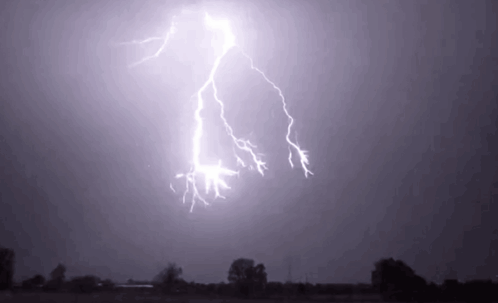Is there anything more frustrating than someone who keeps saying "I'm sorry" without actually changing? In Exodus 9, the plagues intensify to unprecedented levels as livestock die, painful boils erupt, and devastating hail pounds Egypt. Finally, Pharaoh utters words we've been waiting for: "This time I have sinned. The LORD is in the right, and I and my people are in the wrong." It sounds like genuine repentance—until the hail stops and he hardens his heart. Again.
This cycle of temporary remorse followed by stubborn rebellion isn't just ancient royal fickleness—it's a sobering picture of how easily we can mistake crisis-induced regret for genuine repentance, and how God sees through the difference between being sorry about consequences and being transformed by conviction.
The Devastation Deepens
Exodus 9 unleashes three new plagues that strike at Egypt's economic foundation and physical health. The narrative progression shows God targeting increasingly vital resources:
Livestock plague devastates animals → Egyptian economy damaged → Boils erupt on bodies → Magicians can't even stand → First warning to protect remaining property → Hail destroys crops and people outside → First confession of sin → Brief repentance → Quick return to rebellion
This isn't just storytelling – it's a methodical escalation that moves from economic resources to bodily health to agricultural devastation, while introducing a new element: advance warning that provides opportunity for those Egyptians willing to heed God's word.
The First Confession That Didn't Last
When the hail pounds Egypt with unprecedented fury, Pharaoh makes what appears to be a breakthrough: "This time I have sinned. The LORD is in the right, and I and my people are in the wrong" (9:27). These words sound like genuine repentance—acknowledging personal guilt, affirming God's righteousness, and accepting collective responsibility.
This is extraordinary. For the first time, Pharaoh uses language of genuine moral confession rather than merely seeking relief from discomfort. Yet Moses sees through it: "I know that you still do not fear the LORD God" (9:30).
Notice how quickly Pharaoh reverts once the crisis passes: "When Pharaoh saw that the rain and hail and thunder had stopped, he sinned again: He and his officials hardened their hearts" (9:34). His confession wasn't transformation but temporary capitulation under extreme pressure.
This pattern reveals the critical difference between crisis-induced remorse and genuine repentance—one is about escaping consequences, the other about being fundamentally changed in relationship to God.
THE THREE-FOLD DEVASTATION: EGYPT'S LIFE SUPPORTS TARGETED
The plagues in Exodus 9 strike at three fundamental pillars of Egyptian civilization:
Fifth plague (livestock): "All the livestock of the Egyptians died" (9:6) Sixth plague (boils): "Festering boils broke out on people and animals" (9:10) Seventh plague (hail): "The hail struck everything... stripped every tree" (9:25)
What God is systematically destroying:
Economic wealth (livestock were ancient capital/wealth)
Physical health (boils rendered people ceremonially unclean)
Food security (crops devastated by unprecedented hail)
The comprehensive damage:
Livestock: Transportation, food, wealth, sacrificial animals
Boils: Physical suffering, inability to serve in temples
Hail: Destruction of flax and barley, essential crops
The theological message:
Egypt's gods of agriculture and health are powerless
Wealth can be destroyed in a day by divine judgment
Physical pain can render religious practitioners helpless
Not even Egypt's climate is outside God's control
This coordinated attack on Egyptian foundations demonstrates God's complete sovereignty over every domain they considered divinely protected.
The Opportunity Within Judgment
A fascinating new element emerges in the hail plague: "Give an order now to bring your livestock and everything you have in the field to a place of shelter, because the hail will fall on every person and animal that has not been brought in" (9:19).
For the first time, God provides explicit warning that allows Egyptians to mitigate damage by heeding His word. This opportunity divides Egypt into two groups: "Those officials of Pharaoh who feared the word of the LORD hurried to bring their slaves and their livestock inside. But those who ignored the word of the LORD left their slaves and livestock in the field" (9:20-21).
What looks like a simple warning is actually a profound test of faith:
Some Egyptians now fear God enough to act on His warnings
A remnant within Egypt is beginning to recognize Yahweh's power
Divine judgment includes opportunity for those who will listen
Response to God's word creates a division within Egyptian society
This warning reveals that God's purpose isn't just punishment but persuasion—giving opportunity for any who will heed His word to experience relative protection even within judgment.
THE "FINGER OF GOD" BECOMES THE THUNDERING VOICE!
Have you noticed how the INTENSITY of the plagues is dramatically escalating in Exodus 9?
In chapter 8, the magicians whispered about "the finger of God." But now God declares something far more dramatic about the hail: "I will send the worst hail storm that has ever fallen on Egypt" (9:18).
This isn't just another plague—it's UNPRECEDENTED DEVASTATION!
"The hail was so severe that nothing like it had ever been seen in Egypt since it became a nation" (9:24).
The description is absolutely TERRIFYING:
Hail mixed with fire "flashing back and forth"
Thunder roaring across the land
Every exposed person and animal killed
Trees stripped bare
Crops destroyed
Think about the PSYCHOLOGICAL IMPACT of this moment! The Egyptians prided themselves on their stable, predictable environment. The Nile flooded regularly, the seasons were consistent. Their whole civilization was built on environmental reliability.
Now suddenly the sky itself became a weapon—not just normal hail, but supernatural hail mixed with fire! The very heavens that Egypt thought were ruled by their gods were unleashing unprecedented fury under Yahweh's command!
No wonder Pharaoh finally says, "I have sinned this time. The LORD is in the right, and I and my people are in the wrong" (9:27).
But here's the sobering truth revealed in this chapter: Even when people acknowledge God under extreme pressure, that doesn't mean their hearts are truly changed. The moment the thunder stopped, Pharaoh "sinned again" (9:34).
This reveals the critical difference between terror-induced confession and genuine conversion. Many people cry out to God in life's storms but return to rebellion when the sky clears!
WALK THRU TRIVIA CHALLENGE
Question: In Exodus 9, which crops were destroyed by the hail, and which were spared, and why?
A) Wheat and barley were destroyed; flax and spelt were spared
B) Flax and barley were destroyed; wheat and spelt were spared
C) All crops were completely destroyed
D) Root vegetables were destroyed; tree fruits were spared
Check your answer below!
THE PROGRESSIVE REVELATION PRINCIPLE
The most profound theological development in Exodus 9 is God's declaration of His deeper purpose:
"I have raised you up for this very purpose, that I might show you my power and that my name might be proclaimed in all the earth" (Exodus 9:16).
This reveals a divine purpose that extends far beyond Egypt's borders and Israel's immediate deliverance. The equation is divine self-disclosure:
Initial plagues → Demonstrate God's power over Egypt's gods
Intensified plagues → Reveal God's purposes beyond Egypt
Ultimate plagues → Establish God's name throughout the earth
Throughout Scripture, this principle continues. God progressively reveals more of His character and purposes as the narrative unfolds. What began as liberation for one nation ultimately aims at revelation for all nations.
This principle reminds us: God's immediate actions often serve His ultimate purposes of global self-disclosure. What appears to be exclusively about our situation may actually be part of God's larger strategy of making Himself known to all peoples.
Your Turn to Walk Through
As you read Exodus 9 again (and I encourage you to do so), consider:
Where in your life might you have confused crisis-induced remorse with genuine repentance?
How have you responded to God's "advance warnings" in scripture about coming judgment?
What might God be revealing about His character through your current circumstances?
Remember, this isn't just ancient history—it's a window into how God still distinguishes between genuine repentance and temporary remorse, while using even the most difficult circumstances to make His name known throughout the earth.
The Path to Christ
Exodus 9 points to Jesus in remarkable ways. Pharaoh's temporary confession—"I have sinned"—contrasts sharply with the genuine repentance Christ calls for. Jesus warned about the shallow "rocky soil" response where people initially receive the word with joy but fall away when trouble comes (Matthew 13:20-21). Unlike Pharaoh's superficial remorse, Christ seeks transformation that endures beyond the crisis.
God's declaration that He raised up Pharaoh to display His power and proclaim His name throughout the earth foreshadows the ultimate purpose of Christ's work. Jesus said, "And I, when I am lifted up from the earth, will draw all people to myself" (John 12:32). The plagues that revealed God's power to Egypt point toward the cross that reveals God's love to the world.
The division between Egyptians who heeded God's warning about the hail and those who ignored it reflects Jesus' teaching that humanity divides based on response to His word. He said, "Everyone who hears these words of mine and puts them into practice is like a wise man who built his house on the rock" (Matthew 7:24).
Perhaps you've been like Pharaoh—offering God temporary confessions during life's storms without allowing true heart transformation. Crisis-induced prayers followed by business as usual once the pressure lifts. Jesus offers something deeper than Pharaoh's cycle of rebellion, remorse, and relapse. He offers genuine regeneration—a new heart that desires God beyond the circumstantial pressures.
The good news of Christ is that unlike the plagues that brought only temporary change to Pharaoh, the Holy Spirit brings permanent transformation to those who truly surrender. Paul writes, "Therefore, if anyone is in Christ, the new creation has come: The old has gone, the new is here!" (2 Corinthians 5:17).
Will you move beyond Pharaoh's pattern today? Christ doesn't seek your temporary compliance but your complete transformation. Unlike the devastation of Egypt's plagues, Jesus brings restoration, healing, and freedom from the deeper slavery of sin. His invitation isn't to survive judgment but to become a new creation through grace.
True repentance isn't just saying "I have sinned" during life's hailstorms but allowing Christ to fundamentally change your heart's direction—from serving self to serving God, from fear-based compliance to love-based commitment.
TRIVIA ANSWER
Answer: B) Flax and barley were destroyed; wheat and spelt were spared
Exodus 9:31-32 explains: "The flax and barley were destroyed, since the barley had headed and the flax was in bloom. The wheat and spelt, however, were not destroyed, because they ripen later." This agricultural detail confirming the plague happened in late January or early February (when barley is headed but wheat is still young) provides historical authenticity to the account and shows God's precise timing even in judgment.










